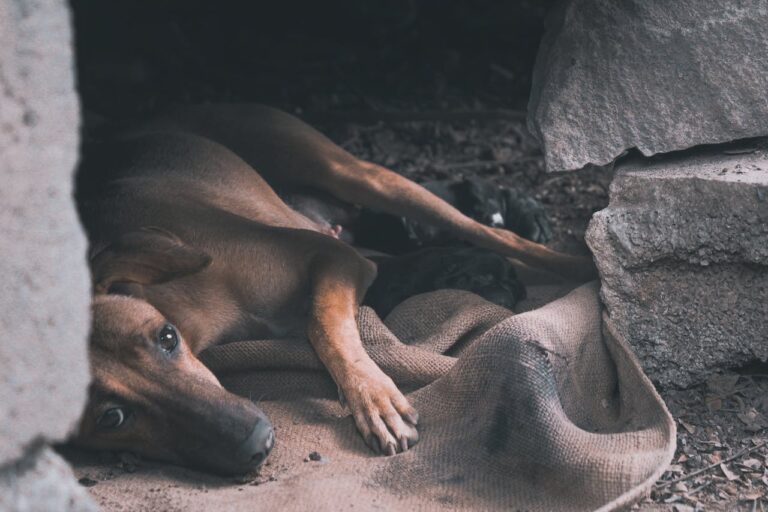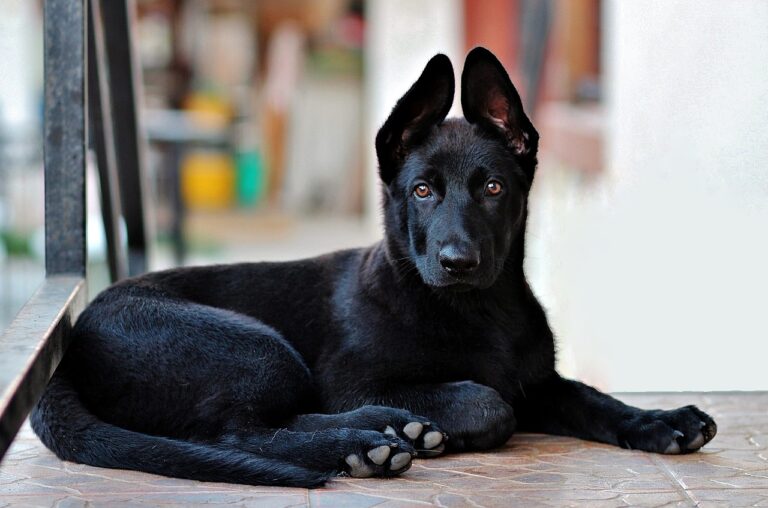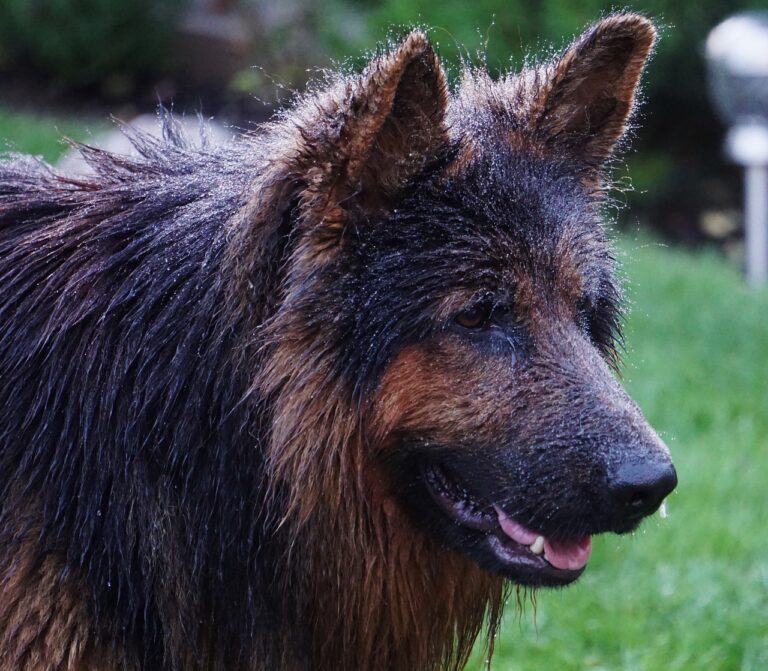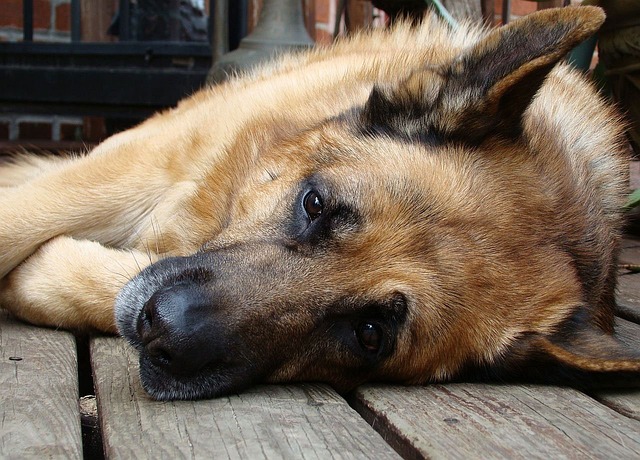
So you just got a new German Shepherd and are excited about spending quality time with the new puppy. You must have spent much time playing and bonding with your dog; everything feels perfect. But wait, you are about to snap out of your little bubble.
Why? Because of its feeding time, and no matter what you do, your German Shepherd will not eat. Have you had a similar experience as the one illustrated above? If so, how did you solve the problem? Feel free to chat about this and other topics on our new forum page. We will appreciate it. Well, whether you just got a German Shepherd, and it is refusing to eat, or you have had one for a while now with a good appetite and suddenly stopped eating, there are several reasons this could be happening.
German Shepherds are very intelligent dogs and can refuse to eat for several reasons. If you just got a German Shepherd, it could be refusing to eat because of a change in its environment or a sudden change in diet. Your GSDs not eating could also result from a change in routine. If you have had a German Shepherd for a while now and recently noticed this issue, it could be a sign of depression, an infection, and pregnancy if your dog is female.
This post will look at improving your German Shepherd’s eating habits using five simple steps. We will also consider steps you could take to change your German Shepherd’s routine to ensure a safe and smooth transition with no hiccups.
Table of Content
5 Easy Tips to Help Improve Your German Shepherd Eating Habits.
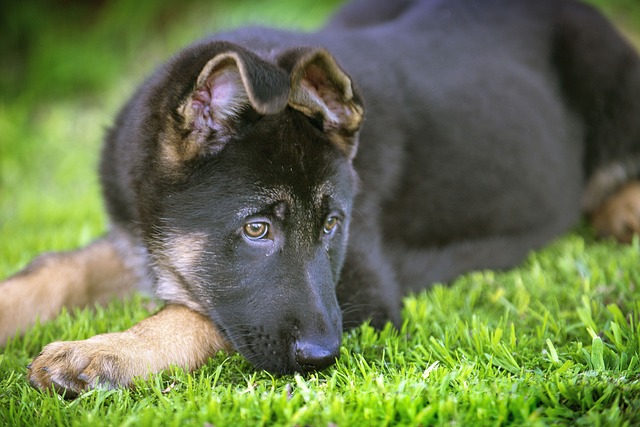
It’s important to note that if your German Shepherd’s drastic refusal to eat results from a medical problem, these steps will be irrelevant. These steps will only work if your dog exhibits signs like hesitation to eat, avoiding the bowel, whining, refusing treats, being easily distracted when it is, or a complete loss of interest. Then these steps are what you need to help boost your dog’s appetite like magic.
1. Include Multivitamins in Your GSD diet
If your German Shepherd stops eating, it is probably a sign that your dog needs a dose of multivitamins. Why? This is because your dog not eating may result from a lack of certain vitamins. When this happens, you could use multivitamin brands to help boost your immune system. One very good multivitamin brand that we highly recommend is the River and Rula Power Pets Everyday Healthy Multivitamin.
This multivitamin will not only help rapidly improve your dog’s hunger for food, but make them excited anytime meal time approaches. The Chewable River and Rula Multivitamin are tasty, so you don’t have to worry about your dog dreading meal time. This multivitamin also helps improve your dog’s coat and immune system. So a win-win situation anyway.
2. Try Deworming Your German Shepherd
Another thing you could do is deworm your German Shepherd. Sometimes when your GSD/ Dog has issues with warms, it prevents it from eating and even causes a significant weight loss. Signs of this is your German Shepherd begging interested in eating at first and then losing interest suddenly. Your dog could also exhibit signs of weakness and depression. If you notice any of these signs, getting your dog dewormed and examined by the vet will be best to determine other possible causes.
3. Try Sticking to a Feeding Routine
Now this step only applies if you still need a feeding routine for your Greman Shepherd. So if you don’t, you must start one immediately. Why? If you don’t already have a feeding routine, you feed your dog whenever you feel hungry. This may also mean you feed your dog at every opportunity, which likely means it gets to eat more times than it should.
Our experiments have shown that dogs fed at random without a specific time frame tend to downgrade the value of food and thus are uninterested in food when it is presented. To know if your dog has this specific issue, try leaving it with its food for the whole day and see if it eventually eats it.
Then you know this could be why your German Shepherd refuses to eat. If you have a puppy, try feeding it specific portions of high-value dog foods three times a day in small portions. It would help if you only fed an adult dog twice daily with a medium to large quantity of high-quality vet-recommended dog food.
4. Ask Your Breeder for the Dog Food Brand He Uses
If you just got a German Shepherd, you must ask your dog breeder for the type of dog food brand he uses. Sometimes your German Shepherd’s refusal to eat may be because of a change in diet from what it is used to. To confirm this, try reaching out to your breeder for the food brand his dogs and pups eat and try switching to that brand of dog food.
If your puppy eats it, then the problem is solved. Feed that brand from now on. And if you desire to change your dog’s diet, you should do this gradually. This will help your dog’s system slowly adapt to the new diet. We will decide more about doing this later in this post.
5. Try Starving Your German Shepherd
This method is a last resort and should only be used once all the other tips above have been attempted. We have used this method on some dogs that are stubborn and hell-bent on not eating what we give them. Before using this method, ensure your dog has been fully vaccinated and healthy. You also need to ensure that your German Shepherd is not pregnant if she is a female.
To do this correctly, start by starving your dog for a whole day, putting it on a diet of only water. After which, try feeding him at a time you have stipulated food. If your dog does not show interest in eating after 3 to 5 minutes, take the food away from your dog and bring it back every hour to see if your dog’s reaction changes.
When your dog shows interest and starts eating, quickly reward him with commendations to encourage him to eat more. Keep motivating and charing him on until he finishes his food. Once he eats a substantial amount, even if he stops, you could take the food away and bring it back the next time you have stipulated for feeding.
Safely Change Your German Shepherd Routine In 6 Steps
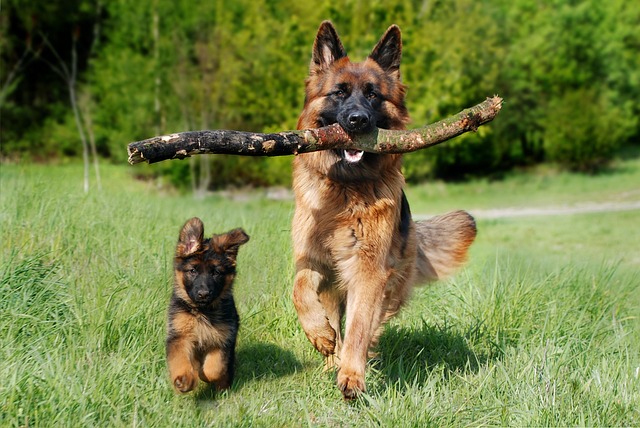
1. Gradual Introductions
Abrupt changes can be unsettling for dogs. Instead, introduce the new routine gradually over several days or weeks. For instance, if you’re adjusting their mealtime, start by serving meals slightly earlier or later than their usual schedule, then gradually move towards the desired time.
2. Maintain Core Activities
While some aspects of your dog’s routine may need to change, keep core activities consistent. Stick to regular playtimes, walks, and cuddle sessions. These familiar activities will provide stability and comfort during the transition.
3. Positive Reinforcement
Encourage your dog to embrace the new routine through positive reinforcement. They offer praise, treats, or favorite toys whenever they adapt well or follow the new schedule. Positive associations will make the changes more appealing to your canine companion.
4. Observe Your Dog
Pay close attention to your dog’s behavior during the transition period. Watch for signs of stress or anxiety, such as decreased appetite, excessive panting, or withdrawal. Consider slowing the transition or consulting a veterinarian or professional dog trainer if you notice any concerning behavior.
5. Stick to Sleep Routines
Dogs thrive on routines, including their sleep patterns. Whenever possible, maintain the same bedtime and wake-up time. Adequate rest is essential for their well-being; consistency in sleep routines will help them feel secure.
6. Create Safe Spaces
Provide your dog with a designated safe space to retreat when feeling overwhelmed or unsure. This could be a cozy corner with their bed, toys, and water bowl. A designated safe space will help your dog cope with the changes and reduce stress.
Conclusion
In this post, we have considered possible reasons why your dog might refuse to eat. We have also considered five easy tips to help improve your dog’s eating habits and how to change his routine safely. We hope you find this post helpful. If you have any additional questions, feel free to leave us a message. We will be happy to help. Or better yet, you could get even more personalized help by being part of our community. Thank you so much for your attention and participation.

